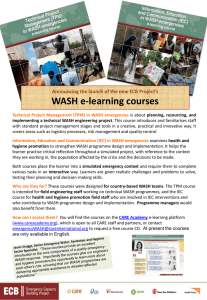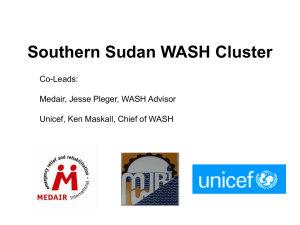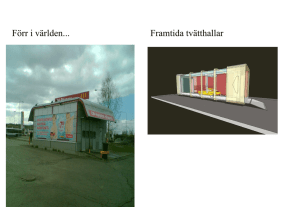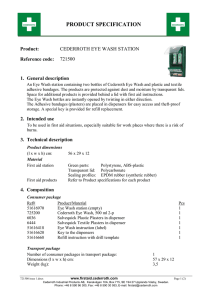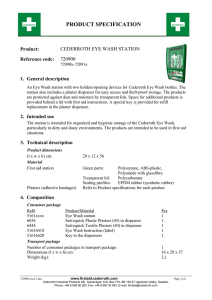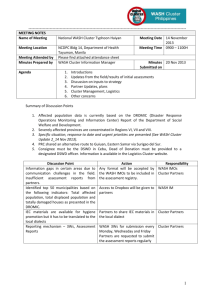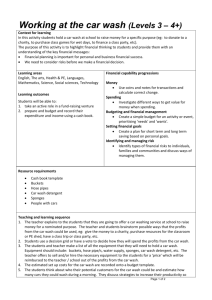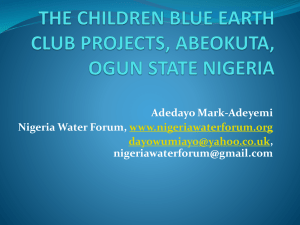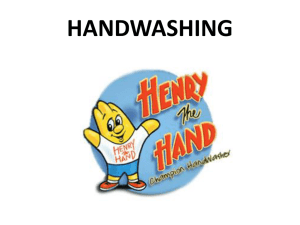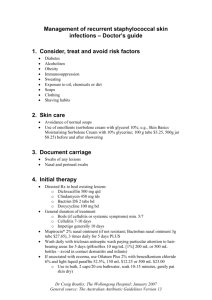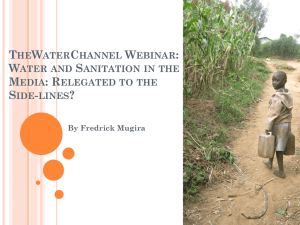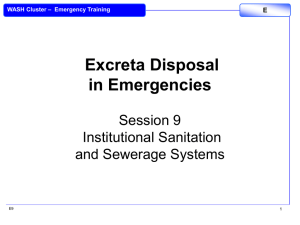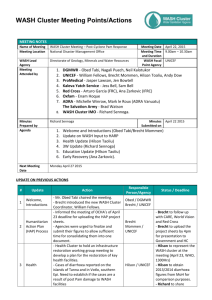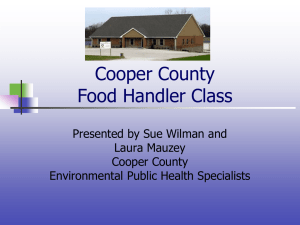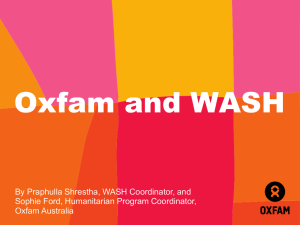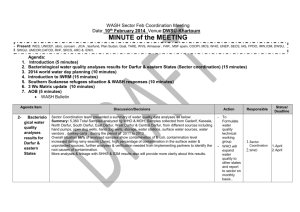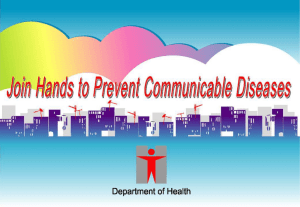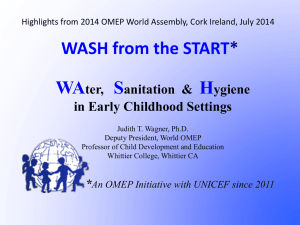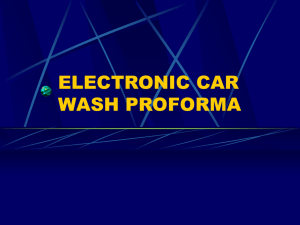Knowledge-Management-System-GWC-Meeting
advertisement
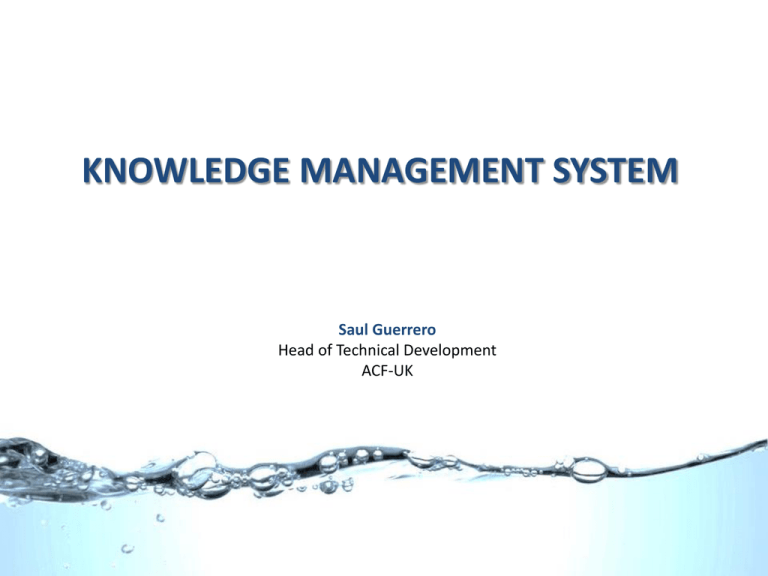
KNOWLEDGE MANAGEMENT SYSTEM Saul Guerrero Head of Technical Development ACF-UK Where are we now and where do we want to be? Wisdom the extent to which knowledge is internalised by practitioners to take practical decisions, supported by a high degree of personal experience Knowledge The degree of familiarity and practical understanding of the information and the conscious use of good and bad practices to define practical action Information The message that results from the analysis of the data Data Raw quantitative and qualitative values or facts that are collected by WASH practitioners Objectives Overall Objective To improve the knowledge of the WASH coordination platform partners to help them achieve more efficient WASH responses in emergency situations. Specific Objective • Develop a participatory knowledge management system that effectively captures lessons learnt and increases access to reliable technical knowledge • Promote greater horizontal accountability and experience sharing amongst Global WASH Cluster partners This requires something bigger than a project It requires a multi-year strategy PHASE 1 PHASE 2 Develop Finalised Knowledge Management System PHASE 3 Implement Knowledge Management System within the Global WASH Cluster Evaluate possible lessons learnt with other clusters and possible synergies/ inter-cluster model development Activities Review & Adapt Knowledge Management System 1. 2. Hygiene Promotion Coordination Practices Test Knowledge Management 3. System Information on Key Themes Management 4. Emergency WASH in Urban Contexts Develop Preliminary Knowledge Management System 2013 2014 2015 2016 2017 What does this preliminary KM System look like? Develop Preliminary Knowledge Management System Working Principles 1 Priority stakeholders: 1 in-country WASH coordination platforms and partners (at national and subnational levels), 2 GWC Field Support Team (currently comprising RRTs, RATs and RECAs) and 3 finally the broader GWC partners and other WASH actors 2 The KMS will rely on online sharing, and in particular, the use of a fully dedicated website, a onestop-shop for “emergency WASH information”. The web site will include quality controlled and tested information, an active link for Q&A and links to a social platform. It is assumed that WASH National Coordination Platforms will have an important role to play to relay lessons learnt from / to partners that have not easy and systematic online access (access of local NGOs to information, ad hoc translations). 3 The KMS will encourage horizontal information sharing, but its primary objective will be to review and validate existing data and information collected by cluster partners and others. Whilst the KMS will not prioritise the collection of primary data, its use of peer-review mechanisms will provide direct and indirect guidance to improve the quality of future data. 4 Promote and support the establishment of nationally and regionally based knowledge management approaches (when appropriate) prior to emergencies, commencing with high risk countries. To do so, it will look at strengthening options for information sharing with governments, universities and societies. Review of Grey Literature (Reports, Surveys, Papers) Identify Lessons Learned, Good/Bad Practices from Available Resources Technical Discussions (KnowledgePoint) WASH Partner Organisations WASH Coordination Platforms GWC SAG Promote/facilitate the research required for gaps identified Create/Identify Peer-Group to Review and Validate previously identified material Identify Theme Identify Knowledge Gaps Formally Disseminate Findings with Practitioners Informally Disseminate Findings (Peer-to-Peer) Who is going to be doing the leg-work? Level of Involvement PHASE 1 PHASE 2 Involvement of WASH Partners & CAST Involvement of Steering Group 2013 2014 PHASE 3 2015 2016 2017 When is this kicking off?

